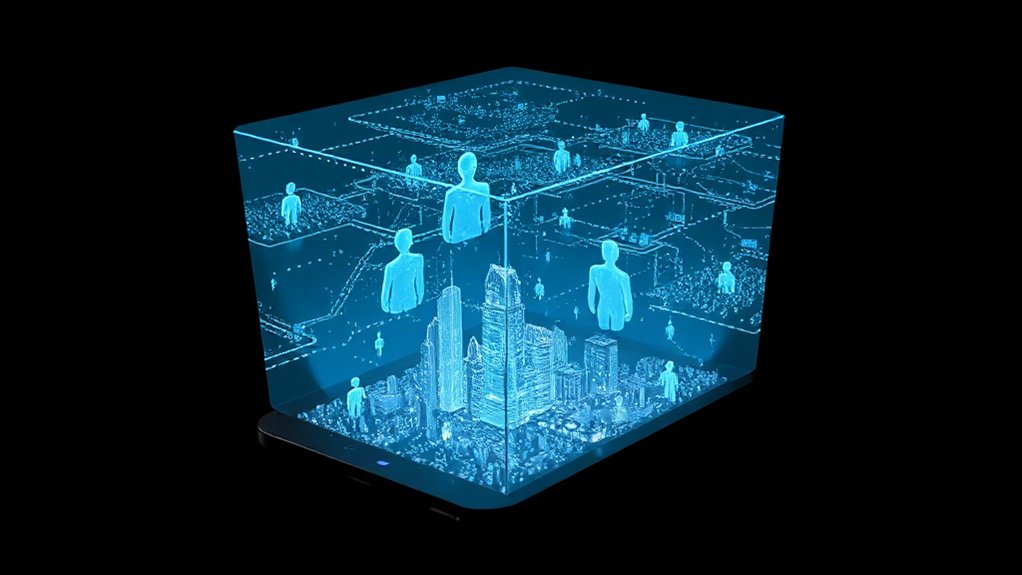IBM has shifted gears in the AI world. The tech giant is now focused on deploying agentic AI systems that deliver real business results. They’re moving past experimentation to implementation across cloud, on-site, and older systems. Their partnership with Oracle aims to improve multicloud capabilities. This strategic move could transform how companies operate and boost productivity. What might this mean for businesses still testing the AI waters?
IBM has announced a major shift in its AI approach, declaring an end to the experimentation phase of artificial intelligence. The tech giant is now focusing on deploying agentic AI systems in real-world enterprise settings. This strategic pivot aims to deliver measurable business outcomes rather than just testing new technologies.
The company plans to integrate agentic AI across cloud, on-premises, and legacy systems through hybrid technologies and modular agent architectures. A new collaboration with Oracle will expand these capabilities for hybrid and multicloud environments. IBM’s watsonx Orchestrate will be available on Oracle Cloud Infrastructure with multi-agent workflows that span across Oracle and non-Oracle applications. IBM believes this approach will help optimize operations and boost productivity.
According to IBM’s projections, new AI agent capabilities could deliver a 176% return on investment over three years. These tools can increase accuracy by up to 40% through improved data integration. The move comes at a critical time, as only 25% of enterprises have achieved their expected AI ROI so far. This aligns with industry trends, as retrieval-augmented generation becomes increasingly important for managing unstructured enterprise data.
IBM’s AI agents promise 176% ROI, yet only 25% of businesses currently achieve their expected AI returns.
The technology rollout includes agent-building tools that can create AI agents in as little as five minutes. IBM’s infrastructure now supports up to 450 billion inference operations daily, which is essential for handling enterprise-scale AI workloads. The company also offers migration services to help businesses move to modern container-based platforms.
IBM’s agentic AI systems can now automate end-to-end business processes with less human intervention. These agents can orchestrate workflows across multiple systems and make real-time decisions based on enterprise data. Their modular design allows them to work with both old and new technologies. IBM emphasizes that their AI agents will function as augmenters of human workers rather than replacements, ensuring humans maintain final decision-making authority.
Looking ahead, IBM expects over one billion new enterprise apps will be created by 2028. Industry surveys show that 99% of developers plan to move from AI experimentation to productization in 2025. This shift reflects a broader trend as businesses move beyond testing AI to implementing solutions that deliver concrete value and transform operations.
References
- https://www.ibm.com/think/insights/ai-agents-2025-expectations-vs-reality
- https://newsroom.ibm.com/2025-05-06-ibm-and-oracle-expand-partnership-to-advance-agentic-ai-and-hybrid-cloud
- https://www.cxtoday.com/conversational-ai/ibm-declares-the-era-of-ai-experimentation-is-over-reveals-its-agentic-ai-gameplan/
- https://www.globalbrandsmagazine.com/how-ibms-agentic-ai-reshape-software/
- https://newsroom.ibm.com/2025-05-06-ibm-accelerates-enterprise-gen-ai-revolution-with-hybrid-capabilities









